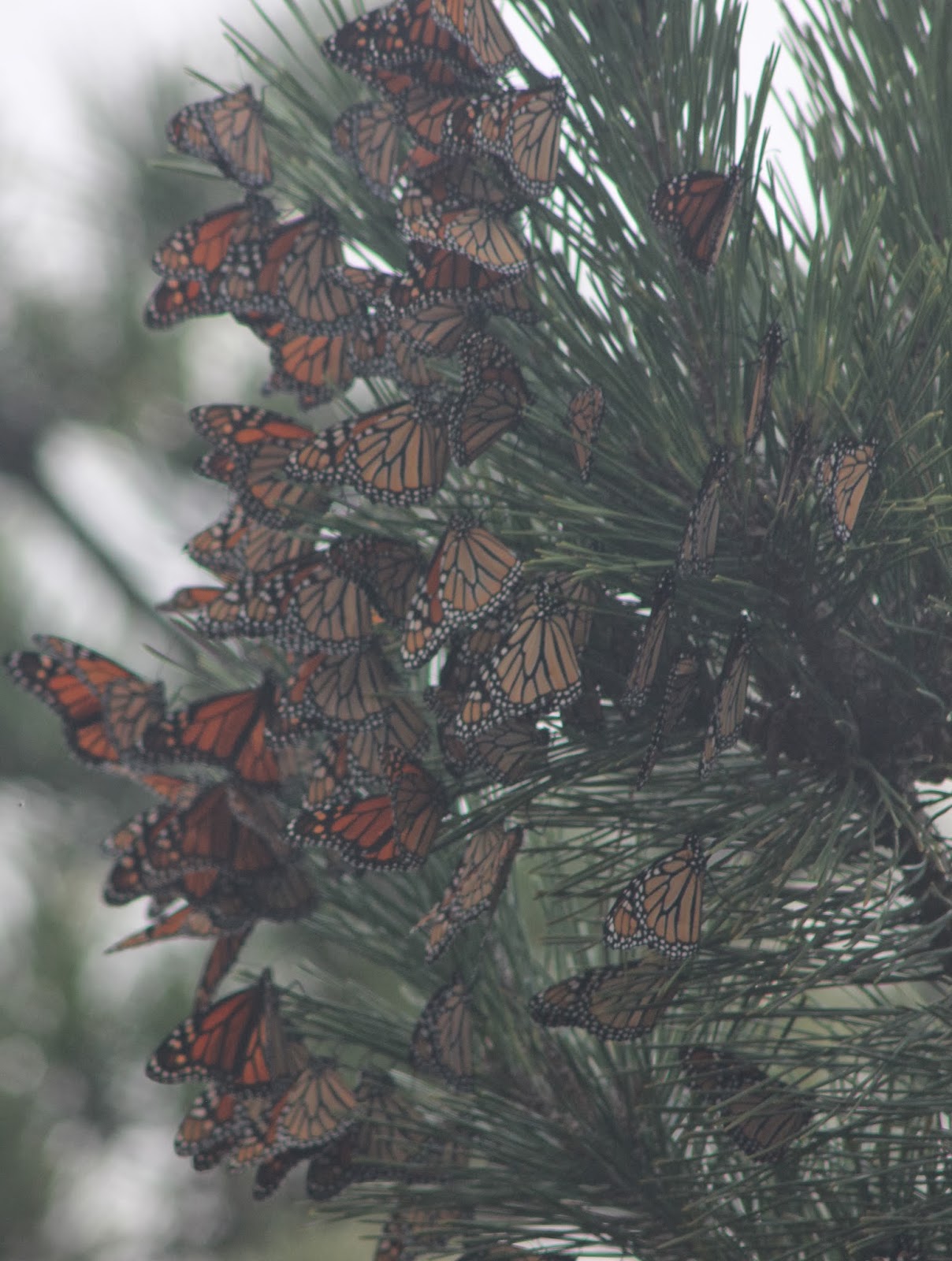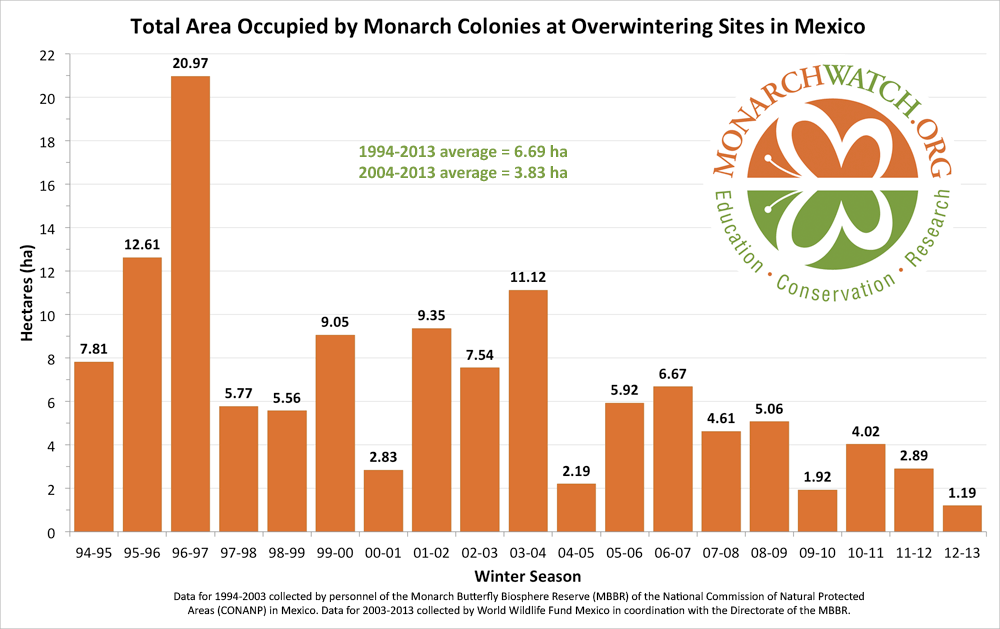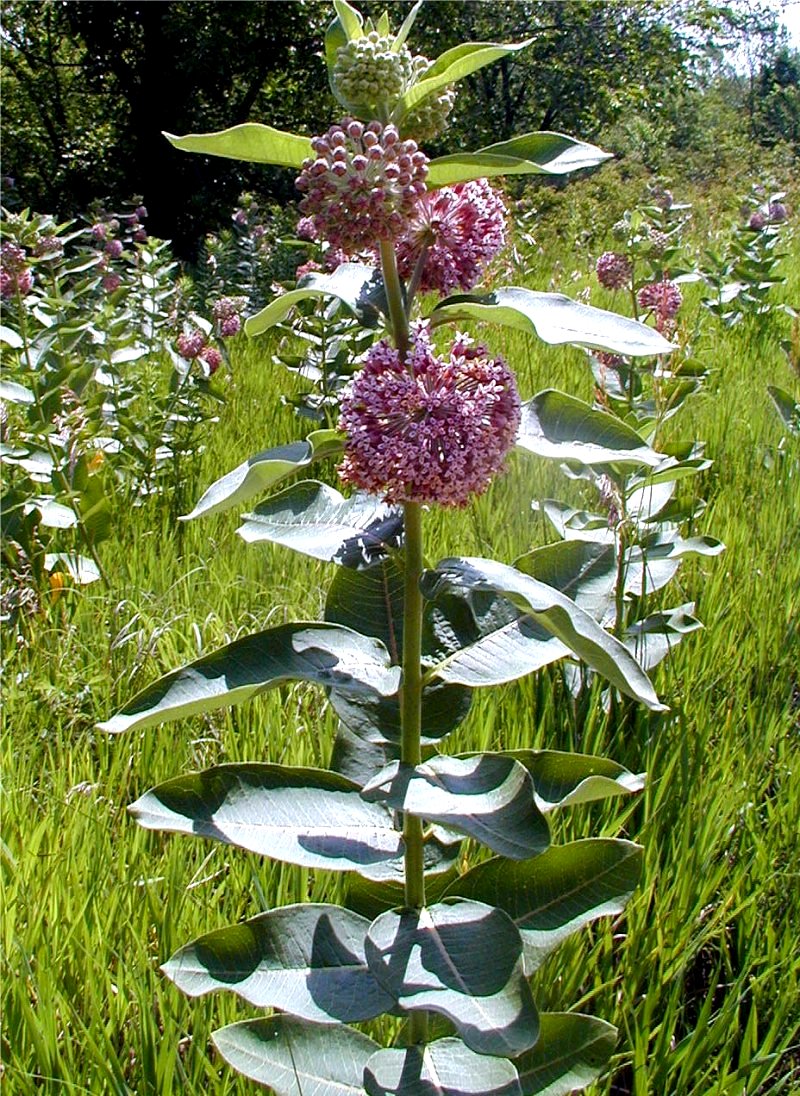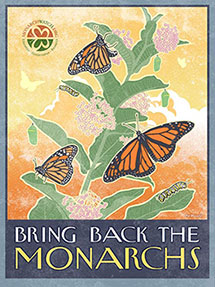and on cool, foggy September 29, down by the beach on Ocean Avenue, as they prepared to cross the Delaware Bay:
I don't even have a photo from this past fall of 2013, as I kept waiting and they never really came. Just one here and then a couple there would flutter by.
Their population has been in a steady decline for the last 2 decades and has reached a CRISIS situation with more than 90% of the population in decline.
For a detailed report, please see Monarch Watch's Population Status report from January 29, 2014: http://monarchwatch.org/blog/2014/01/monarch-population-status-20/
and for further info, see: http://www.learner.org/jnorth/tm/monarch/population_mexico_graph.html.
This drastic decline in population can be attributed to the following factors:
1. Habitat loss along their migratory routes as well as in Mexico
2. Use of herbicides on large scale farms, killing their main larval host plant, native Milkweed
3. Use of pesticides
4. Severe drought in the west
5. Climate change
YOU CAN HELP!
a. Plant milkweed. Seeds are available FREE at this site: https://www.livemonarch.com/free-milkweed-seeds.htm or go to your local nursery. The variety that grows best in the NE is Asclepias syriaca and looks like this:
c. Avoid pesticides and herbicides, using them only when necessary and be sure to follow the labeled instructions.
d. Buy sustainable, organic, and GMO free products
e. Spread the word
To inform yourself further, see Monarch Watch: http://www.monarchwatch.org/






This is a really important story. The monarchs are incredibly special and must be saved. Thanks for posting.
ReplyDelete